I’ve been reading a lot of Pema Chödrön’s writings about tonglen practice lately. One quotation of hers keeps sticking with me:
Tonglen practice (and all meditation practice) is not about later, when you get it all together and you’re this person you really respect. You may be the most violent person in the world—that’s a fine place to start. That’s a very rich place to start—juicy, smelly. You might be the most depressed person in the world, the most addicted person in the world, the most jealous person in the world. You might think that there are no others on the planet who hate themselves as much as you do. All of that is a good place to start. Just where you are—that’s the place to start.
It seems appropriate to digest those wise words right on the cusp of a new year, when even those of us who don’t do much to commemorate NYE get to thinking about endings and beginnings and starting new things.
Actually, though, the quote resonates retrospectively more than prospectively. Starting where I am—treating each new moment as an opportunity to approach life with a fresh perspective—is at the heart of the resilience I’ve been feeling in the last few weeks, as my hospital rotation wrapped up and I entered the holiday season.
When I was interviewing for DI programs, I was repeatedly told that the most crucial quality in a strong dietetic intern was resilience. It confused me at the time: I was expecting to hear about other traits, like critical thinking, clinical judgment, or empathy.
Now that my first 15 weeks of the DI program are behind me, I know why resilience kept coming up. The year demands constant change. A lot goes into doing the job well while one is at work, but what happens outside of the clinical workday itself—adjusting to new commutes and new communities of patients, being willing to work around each preceptor’s schedule, processing information quickly but thoroughly—is equally important. And it’s a test of flexibility more than anything else.
Flexibility, of course, is as far from being one of my inborn strengths as anything could be. It’s a deficit, actually, but I think the DI is helping me to build it up, little by little. A therapist told me long ago that I’d responded to a lot of stuff in my past by clinging to control, and that this would always be complicated for me, because control had (for better or for worse) become one of my strengths. It was true, and I’ve spent the last few years of my life working hard to release my grip, soften up, and move with the flow of things. It’s good for me, but I do feel robbed of a strength, not to mention frequently disoriented (“thrown out of the nest,” to use another Chödrön expression).
Like anything else, it’s a work in progress. Sometimes I flow without trying to. Sometimes I can’t lighten up or loosen up at all, and the opportunity to tread lightly is in having a sense of humor about a clingy/grasping/reactive day. What feels really good is when I can move between these states quickly—in other words, when a craggy morning doesn’t necessarily become a proverbial “bad day.”
This was, I remember, such a huge struggle for me in ED recovery: flipping my experience around quickly, rather than writing a narrative about how it was going to be a bad day or a bad week because something ugly had happened with food. It took me a while, but I did get to the point where I could struggle midday but feel grounded, balanced, and sane by dinnertime. And, as with so many other things, the skills I learned in ED recovery are now being cultivated in other areas of my life.
The last few weeks of my hospital rotation where chaotic and messy. I felt powerful and competent sometimes, totally overwhelmed at others. In the past, each moment of mess would have gotten drawn out and intensified by my tendency to judge and agonize about struggle as its happening. With the DI in full swing, I didn’t have the time to get sucked into that kind of a vortex. I had to bounce back quickly from feeling tripped up, caught off-guard, or overwhelmed.
So I did. When things felt chaotic or messy or rough, I took a few minutes to breathe, to get into my body, to feel sensations. I invited myself to start over. And I invited myself to believe that resilience was possible. Sometimes it felt a little forced. It almost always felt like some version of “fake-it-till-you-make-it.”
But there’s a lot of wisdom in “fake-it-till-you-make-it”—or at least in having faith that repeated, small behaviors and actions can sometimes bring about inner change (rather than the other way around). I wasn’t always sure that I could shake off a heavy or anxious mood when I invited myself to take a deep breath and move forward as if I could. Most of the time, though, it worked.
I’m now inviting myself to believe that this experience of resilience can stay with me outside of the DI—through early January, and then moving beyond next summer. I’ll proceed as if it can, and it will. And as a new year gets underway, what I wish for myself—what I wish for any person who needs it—is faith that each new moment, each new breath, is a chance to begin again. New beginnings don’t have to look any particular way, and they don’t require preparatory self-improvement. They’re an evergreen possibility, and they can take all sorts of tiny, everyday shapes.
As 2019 begins, I’m celebrating any and all opportunities to see and do things differently. And I’m giving thanks for all of the goodness in my life that abides—friends, family, food, and especially my body. I wish you all light, joy, and continual moments of starting anew—on New Year’s Eve, and always.
And now, some recipes and reads!
Recipes
What a beautiful concord grape bread, perfectly veganizable with non-dairy milk.
I’m all about cozy winter recipes like this right now: an old-fashioned vegan French onion chowder.
More soup! Tomato barley with all of the cheesy roasted chickpeas.
And now, for some baked goodness, starting with this cozy and creative maple dijon butternut sage & apple bake.
Finally, a lovely vegan winter centerpiece from the talented Thomas: Finnish rutabaga gratin.
Reads
1. HDL cholesterol is regarded as the “good” cholesterol, and a strong body of evidence shows that very low levels HDL are actually associated with an increased risk of heart disease. A new study, though, suggests that very high levels of HDL might also be problematic, which means that the relationship between HDL and cardiovascular disease risk is what’s known as a “U-shaped” pattern. This Scientific American blog discusses the interesting findings!
2. One of the most painful, yet often under-discussed consequences of having childhood cancer and cancer treatment is that fertility can be permanently altered. A new cryopreservation procedure—freezing whole parts of an ovary, rather than individual eggs—may give childhood cancer patients hope. The Guardian shares details.
3. On the topic of cancer and other chronic illnesses, The Boston Globe profiles doctors who are working on earlier, more precise detection methods for disease diagnosis.
4. This fall, I witnessed firsthand how important palliative care is for those who need it. As this Washington Post article makes clear, many people in this country can’t access palliative care because it’s unavailable or uncovered by insurance. The piece gives exposure to a really important healthcare topic.
5. Also from the Washington Posta great perspective on how people can better prepare themselves for the challenges of behavior change. I love the author’s differentiation between adopting a habit vs. building a life skill—I tend to think that most changes with food and nutrition fall into the latter category, which is why robust support and patience is so necessary for them to happen!
Happy New Year’s, a little early, friends. Sending love. And may all beings living be happy and free.
xo
You might also like
Happy Sunday, everyone. I’ve had a good weekend so far, a combination of rest and work. I purposefully took Friday off from my nutrition clients so that I could spend the weekend catching up on my inbox, decluttering my apartment, downloading syllabi and picking up school books, and doing all of the other things I wanted to do before my new semester began. The decluttering bit ended up being incredibly cathartic–a massive purge of no-longer-useful papers, files, garments, kitchen odds and ends, and even books….
I’ve been reading a lot about authenticity lately. I guess this is self-selecting, as it’s a topic that interests me and tends to permeate the spaces I spend time in (yoga studios, blogs that focus on health and self-care, therapy). But authenticity seems to be having something of a moment, too—or so book titles and articles would suggest. For the holidays, my mom gifted me with a copy of Baron Baptiste’s new book, Perfectly Imperfect. I was touched that she thought of it,…
I’m in the same mode I was a week ago when I wrote my Sunday post: taking care of business, little by little. There are things that feel weighty indeed, but I’m doing my best to look after what needs my attention regardless. That includes studying for the RD exam; it took me some time to find my groove, but now I’m chipping away at it. It includes continuing to rummage through all of the work emails and items I pushed aside while…
This past week in yoga, my teacher quoted a verse from a poem by Rumi. Some of you might know it already; the title of the poem is “On A Day”: When the wind is perfect The sail just needs to open and the world is full of beauty. Today is such a day. I wasn’t surprised at my teacher’s timing. We New Yorkers had just had two of the warmest and most beautiful days of an otherwise cold, rainy spring. The gleeful…

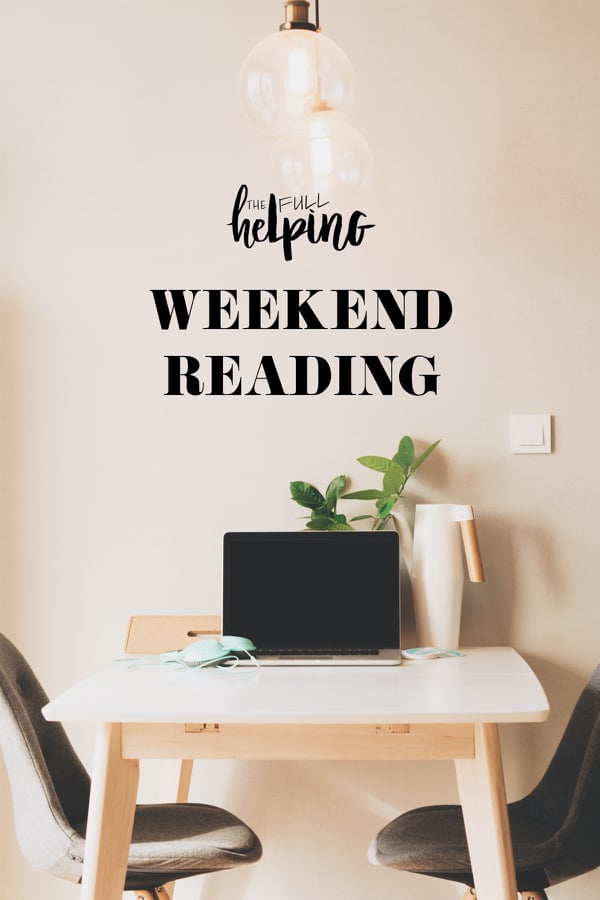
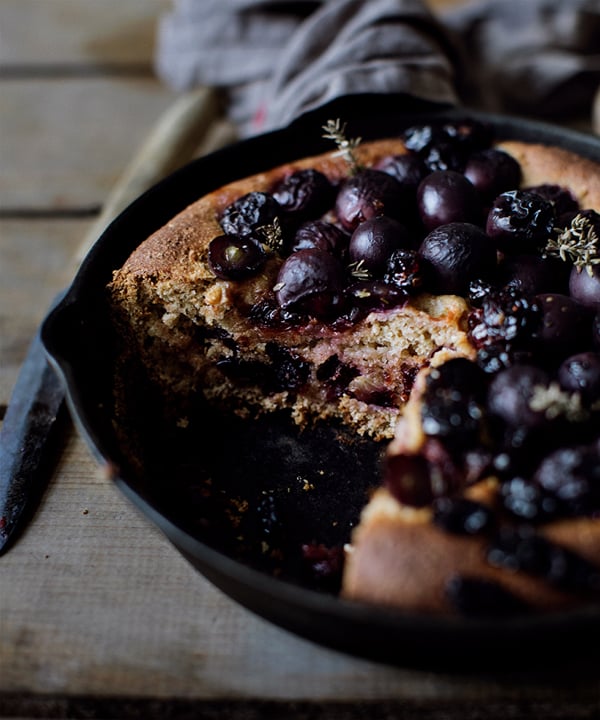
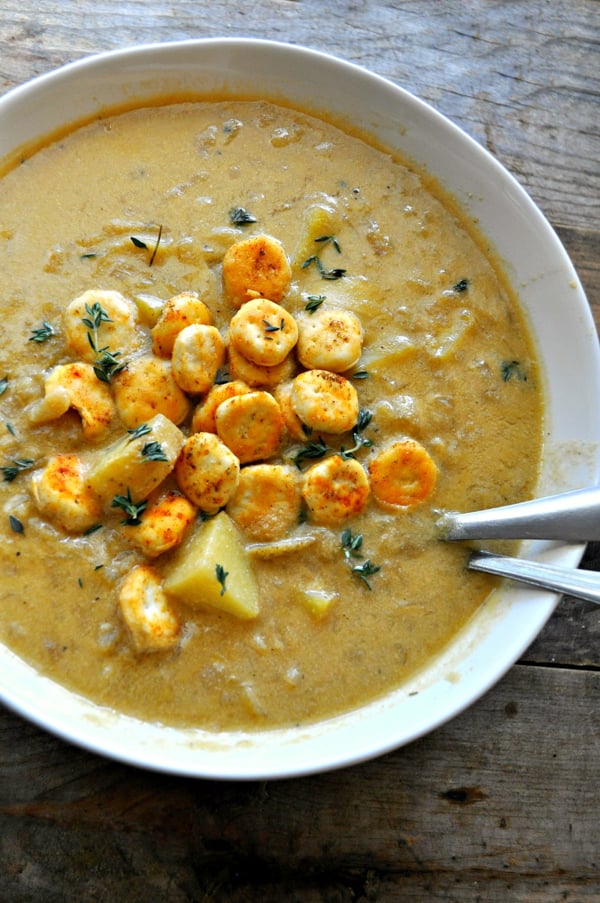
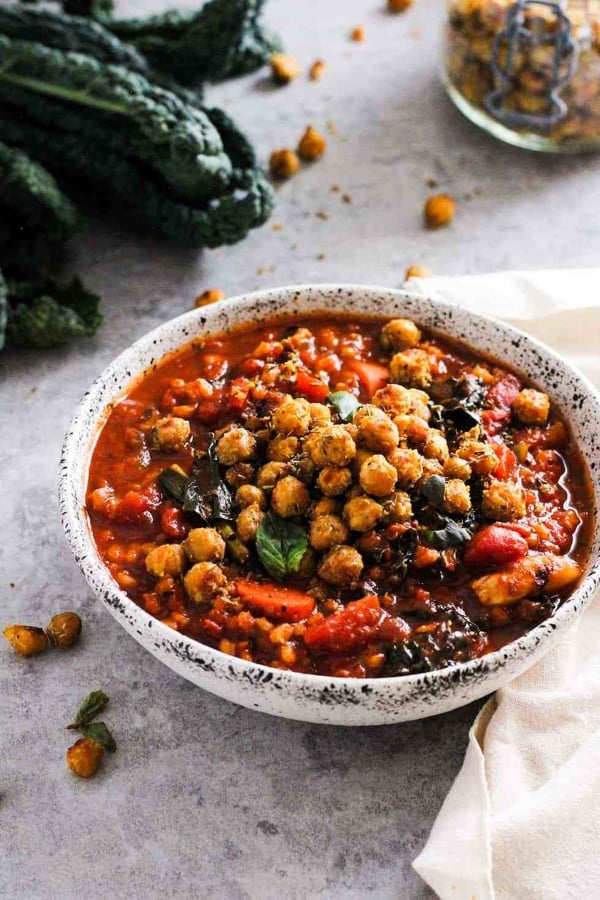
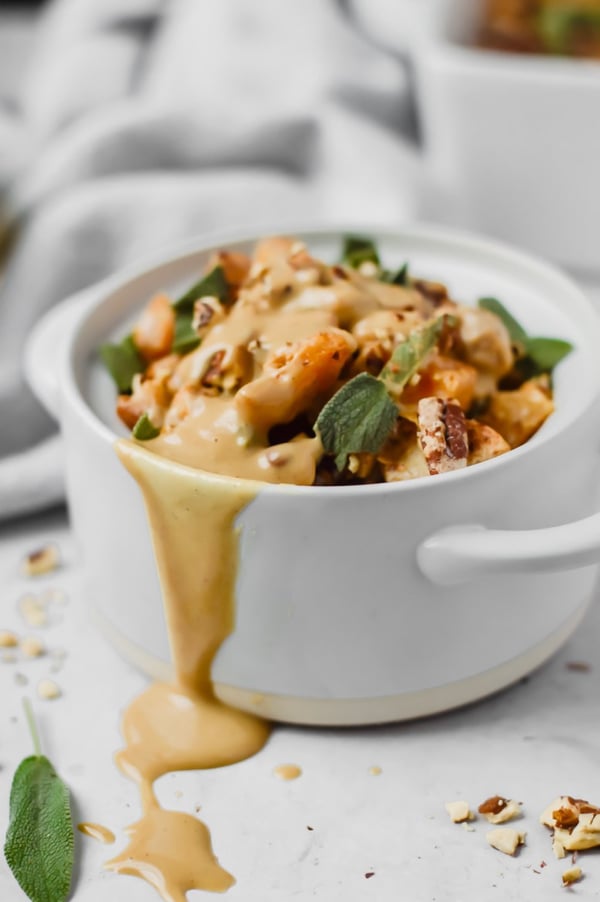
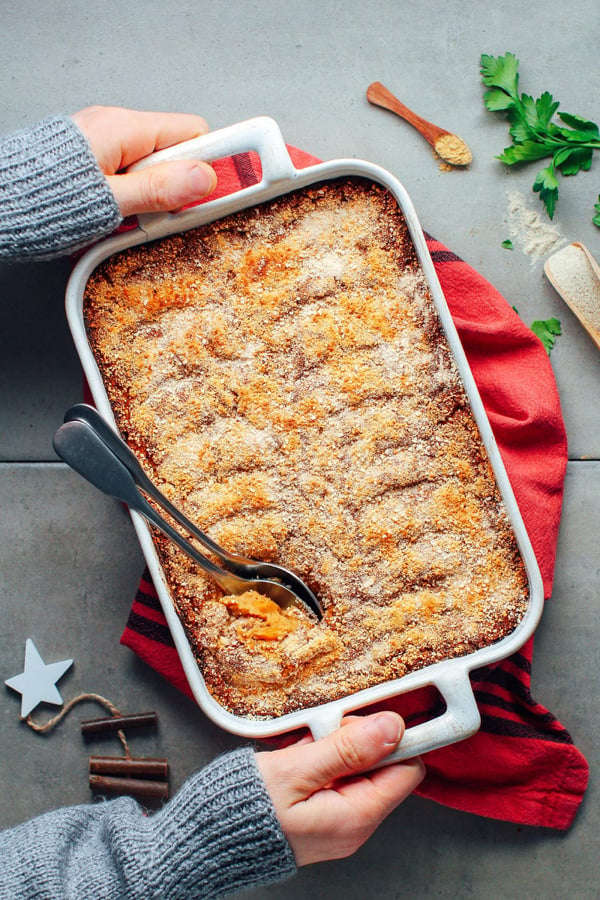
Leave a Comment
I always enjoy and contemplate your very well thought out musings, but after a couple days, am thinking this one is one to print out and keep handy for frequent re-reading. Resilience and flexibility, such hard things to learn! Sincerely, the person who earlier tonight had a mini meltdown and briefly convinced herself 2019 was ruined due to some cornbread technical difficulties (it didn’t turn out pretty, but ultimately it was delicious!)
Great list and reads, thanks. Agreed on fake it til you make it, it resonates with me this year for practicing positive habits until they stick. Happy New Year.
Gena,
That tomato barley soup is now officially on The List! Thank you!
I read the article about HDL cholesterol. Coincidentally, I just finished a class about fats and their role in atherosclerosis. We covered HDL and LDL (and all of their friends) and so I was interested to learn about having a too high HDL number. I have asked my doctor about my own labs lots of times and he focuses on the ratio more than the number. I liked that the advice in the article seemed conservative rather than reactionary.
Happy New Year to you. May you continue to grow, flex, bend, change and generally enjoy yourself despite whatever gets thrown at you! Thank you for a year of good reading and wonderful recipes.
Libby